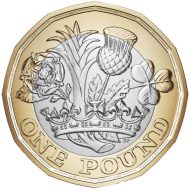Many money saving ideas start by looking at your budget and then asking you “What’s the most you can afford to save?”. They then calculate how much you would save over 1, 2, 5, 10 years (or similar) and talk about how much less interest you might pay on a loan or credit card, etc. if you did this. This amount can then be added to your savings to build a very attractive looking number.
However, I’m going to talk about getting into the habit of saving, i.e. doing any saving at all. I recommend ignoring any existing budget and saying to yourself “how much could I save and how often in a way that I simply wouldn’t notice financially / what’s the least I could save”. I believe that genuine affordability means that you wouldn’t notice the difference to your disposable income if you saved that amount. This could mean £1 a week, or £1 a day or it could mean 10p a month, or less.
The reason I’m writing about things in this way is that I’d like to split the habit of saving away from any budgetary calculations. Also: what I think these other methods ignore is time. Your circumstances might change over time. Interest rates might change over time (however much financial organisations might say that their terms and conditions are not going to change). So let’s start by just saving a small, affordable amount on a regular basis and (if that goes OK) build that up to something more significant.
